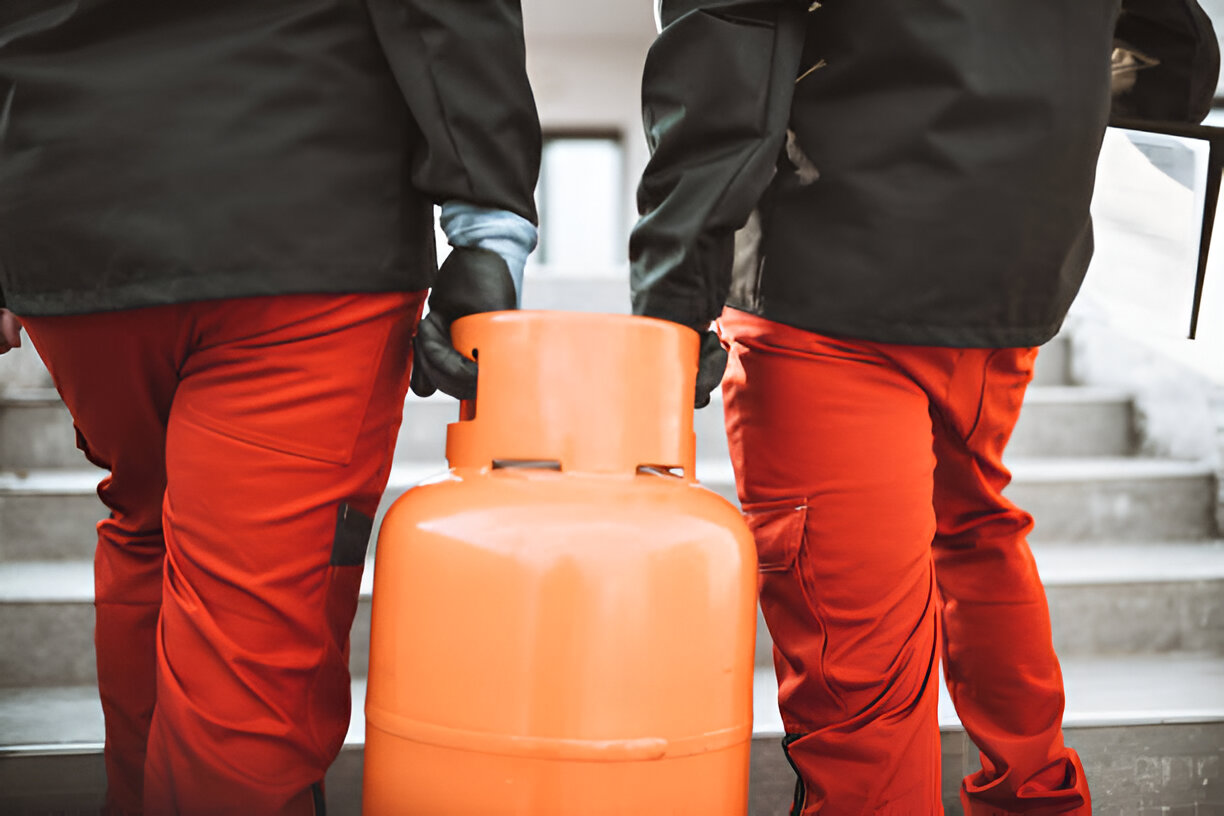Gas cylinders are a vital component in both homes and businesses across Dubai. They power everything from stoves in residential kitchens to heating systems in commercial establishments. Despite their durability, gas cylinders require periodic replacement to maintain safety and efficiency. Ignoring warning signs can result in leaks, reduced gas performance, or even dangerous situations. Therefore, it’s essential to be aware of when your gas cylinder may need replacement to prevent any potential hazards.
This article highlights the key signs that indicate your gas cylinder needs replacing and offers safety tips to help you maintain a secure gas supply.
1. Physical Damage on the Cylinder Body
Gas cylinders are engineered to endure high pressure, but prolonged use can cause them to deteriorate. Any noticeable dents, rust, or cracks on the surface are clear indicators that the cylinder is unsafe.
Key signs to monitor:
- Rust patches: Prolonged exposure to moisture can lead to corrosion, weakening the cylinder wall.
- Dents or bulges: These indicate possible internal damage caused by mishandling or pressure fluctuations.
- Cracks around the valve: Since the valve is a critical component, cracks in this area pose a serious safety risk.
Tip: Dubai’s humid environment can accelerate rust formation, so it’s important to inspect your cylinder monthly for any signs of physical damage.
2. Expired Cylinder Certification
Each gas cylinder has a stamped expiration date, which indicates when it should be retired from use. Using an expired cylinder increases the risk of accidents because older cylinders are more prone to leaks or structural failure.
What you should do:
- Always verify the manufacturing and expiration dates on the cylinder before use.
- If your cylinder is nearing expiration, contact a certified gas supplier in Dubai to replace it.
3. Persistent Gas Odor or Leakage
Natural gas is odorless, but suppliers add a distinct smell to help users detect leaks. If you smell gas frequently, even when the cylinder valve is tightly closed, it’s likely that the cylinder has developed a leak.
Steps to follow in case of leakage:
- Turn off the main gas supply immediately.
- Ensure that the area is well-ventilated by opening windows and doors.
- Avoid using any electrical appliances or open flames near the cylinder.
- Contact a trusted gas supplier for inspection and a replacement if necessary.
4. Reduced Gas Efficiency
If your appliances aren’t heating up as quickly or performing as efficiently as before, despite having enough gas, the cylinder may be at fault. Over time, residue build-up or partial valve blockages can reduce the cylinder’s efficiency.
In such cases, replacing the cylinder can restore proper gas flow and appliance performance. Be sure to rule out other potential causes, such as a faulty appliance or regulator, before deciding to replace the cylinder.
5. Malfunctioning or Damaged Regulator
While the cylinder itself may be in good condition, a faulty gas regulator can cause similar issues. If replacing the regulator doesn’t resolve the problem, it might be time to replace the cylinder.
Always ensure that you use high-quality regulators approved for use with your gas cylinder, and periodically check for wear and tear.
Best Practices for Gas Cylinder Maintenance
To prolong the life of your gas cylinder and ensure safe usage, follow these maintenance practices:
- Conduct regular visual inspections to detect any signs of damage, such as rust or cracks.
- Store cylinders in a dry, well-ventilated area, away from direct sunlight or heat sources.
- Purchase cylinders only from licensed and certified gas suppliers in Dubai, such as AJ Gas.
- Avoid overfilling cylinders, as this increases the risk of gas leaks and pressure build-up.
- Never attempt to repair a damaged cylinder on your own. Call a professional for assistance.
Safety Tips When Handling Gas Cylinders
Handling gas cylinders requires caution and adherence to safety protocols to prevent accidents:
- Always keep cylinders upright during storage and use.
- Check for leaks regularly using a soap and water solution around the valve and connections. If bubbles form, it indicates a leak.
- Never store cylinders indoors or in confined spaces without ventilation.
- Dispose of expired or damaged cylinders properly by returning them to a licensed distributor for safe handling.
FAQs
Q1. How long can a gas cylinder last before it needs replacement?
Most gas cylinders are designed to last up to 10 years, after which they should be replaced, even if they appear to be in good condition.
Q2. How can I tell if my cylinder is leaking?
You can detect a gas leak by applying a soapy water solution around the valve and connections. If bubbles appear, it’s a sign of a leak.
Q3. Is it safe to use a rusty gas cylinder?
No. Rust can weaken the structural integrity of the cylinder and increase the risk of leaks. If rust patches are visible, replace the cylinder immediately.
Q4. What should I do if I smell gas in my kitchen?
Immediately turn off the main valve, ventilate the area, and avoid using any electrical appliances. Contact a professional gas service for inspection.



Comments are closed